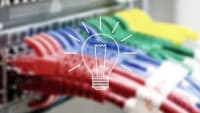Description
This course begins with the fundamentals of electronics: voltage, current, resistance, power and Ohm's Law, and then moves to more complex topics including circuit analysis, logic design, microcontrollers and PCB construction. You will learn about diodes, capacitors, transistors and operational amplifiers before moving on to digital logic, binary algebra and microcontroller programming. After laying the groundwork, the course moves on to PCB design, where you will learn how to develop your own circuit board layouts using industry standard tools. This course is mainly focused on real-world applications, with several hands-on examples and demonstrations.
What You Will Learn:
- Basics introduction of electricity and electronic components.
- Ohm’s Law, voltage dividers and power calculations.
- Analog electronics: capacitors, inductors, diodes, transistors and op-amps.
- Digital electronics: logic gates, flip-flops, binary and hexadecimal systems.
- Introduction to microcontrollers and embedded systems.
- Understanding datasheets and electronic symbols.
- Designing schematics using CAD tools.
- PCB layout, routing and preparing Gerber files for manufacturing.
- Practices for debugging and troubleshooting circuits.
Who Should Take This Course?
- Beginners and hobbyists interested in learning electronics from scratch.
- Students and engineers searching for a solid understanding of electronics and circuit design.
- Makers and tinkerers who want to prototype their own hardware projects.
- Aspiring embedded systems developers looking to strengthen their hardware knowledge.
- Product designers wanting to create electronics-based solutions.
Why Take This Course?
This course is suitable for anyone who wants to go beyond circuit boards and theory and start developing functioning, professional-grade electrical gadgets. It combines fundamental theory and practical exercises to make complex topics understandable and enjoyable. You will not only get the confidence to build and prototype your own electronic systems, but you will also learn key industry-relevant skills like hardware design, embedded development and electronics engineering. Whether you want to work in electronics, design breakthrough hardware products or simply understand how the machines around your function, this crash course is the right starting point for you.







